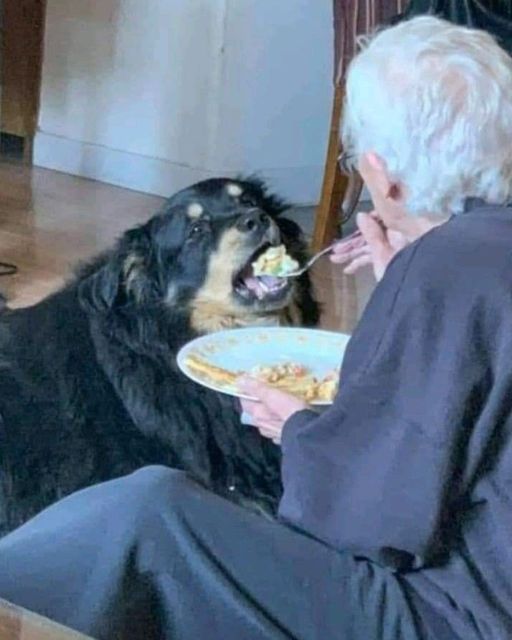When my grandpa moved in after his stroke, he barely spoke. Quiet and withdrawn, he spent most days in his recliner, surrounded by old Westerns and memories. Then Rizzo, our giant Bernese mix, attached himself to Grandpa like a shadow—nudging his cane, barking if he didn’t get up, and curling at his feet like a guardian.
We thought it was sweet. But then came the eggs.
Every Sunday, Grandpa would cook scrambled eggs—something he’d never done before—and feed the first bites to Rizzo, talking to him in soft whispers. One morning, I overheard him say, “Such a lovely tradition, don’t you think?” And then I understood: he was talking to Grandma. She’d made those eggs every Sunday for sixty years—until she passed.
Over time, Grandpa began calling Rizzo “Hazie,” brushing him with her hairbrush, and leaving her earrings beside dog treats. It felt like something inside him was unraveling, but no one wanted to confront it.
Then one stormy night, Grandpa fell. It was Rizzo’s barking that alerted us—he’d stayed by Grandpa’s side through it all. At the hospital, Grandpa whispered, “Hazie saved me… again.”
That’s when it hit me: it wasn’t confusion—it was love. His grief had found a new vessel in Rizzo. Maybe not rational. But human.
We didn’t try to fix him. We met him where he was—leaving small reminders of Grandma, cooking her old recipes, and letting Rizzo stay close.
One evening, Grandpa said, “I know he’s not her. But sometimes, when I talk to him… it’s like she answers.”
Grief doesn’t always look like tears. Sometimes, it looks like scrambled eggs and a dog named Rizzo.
